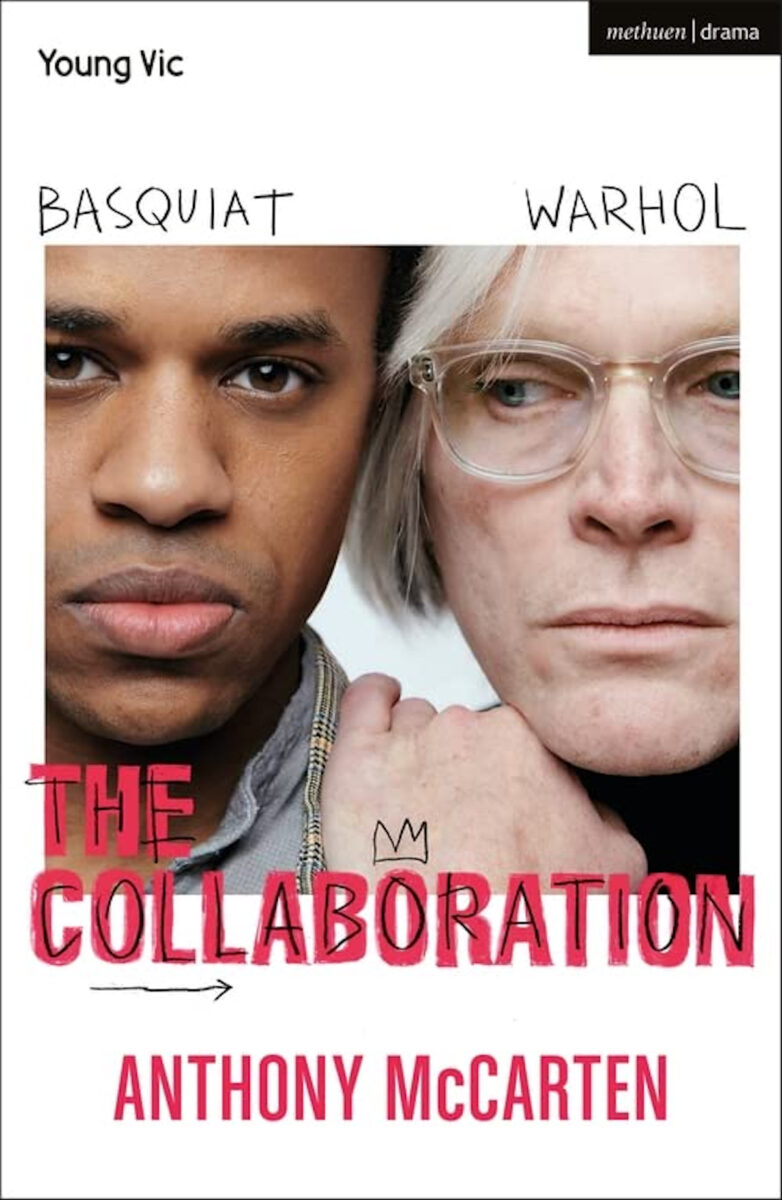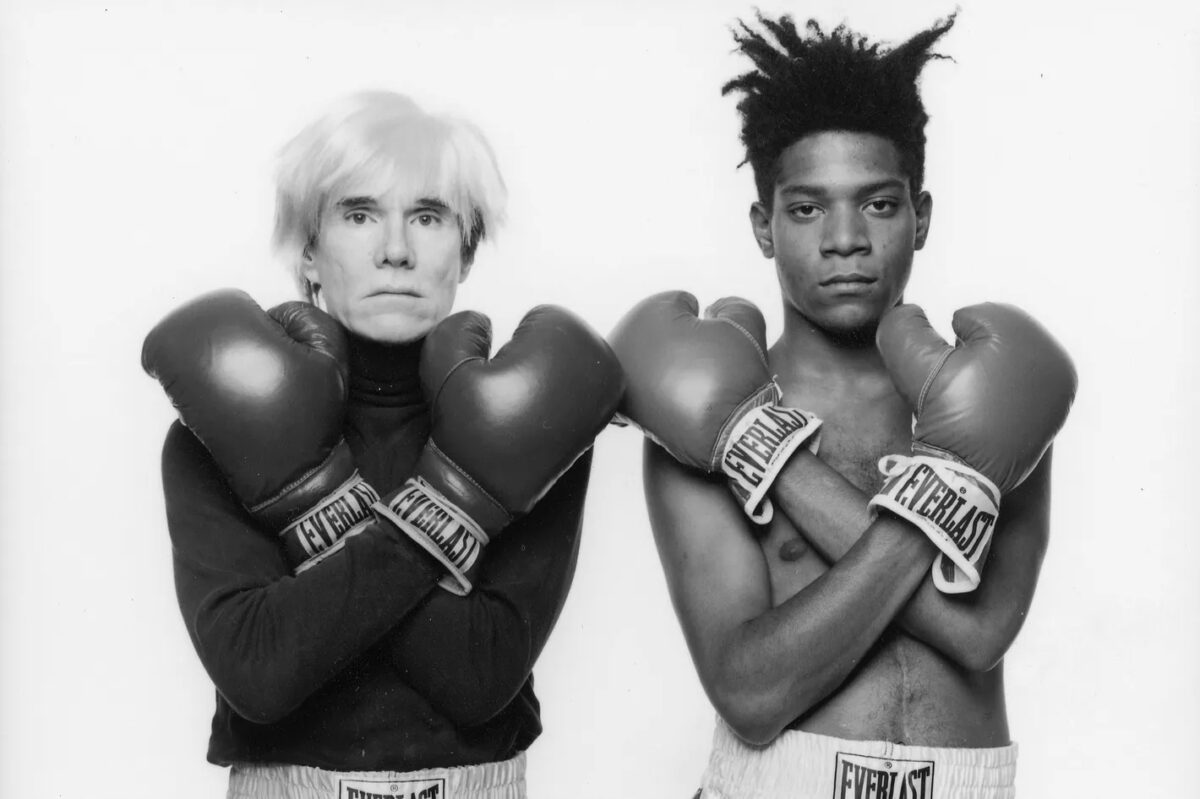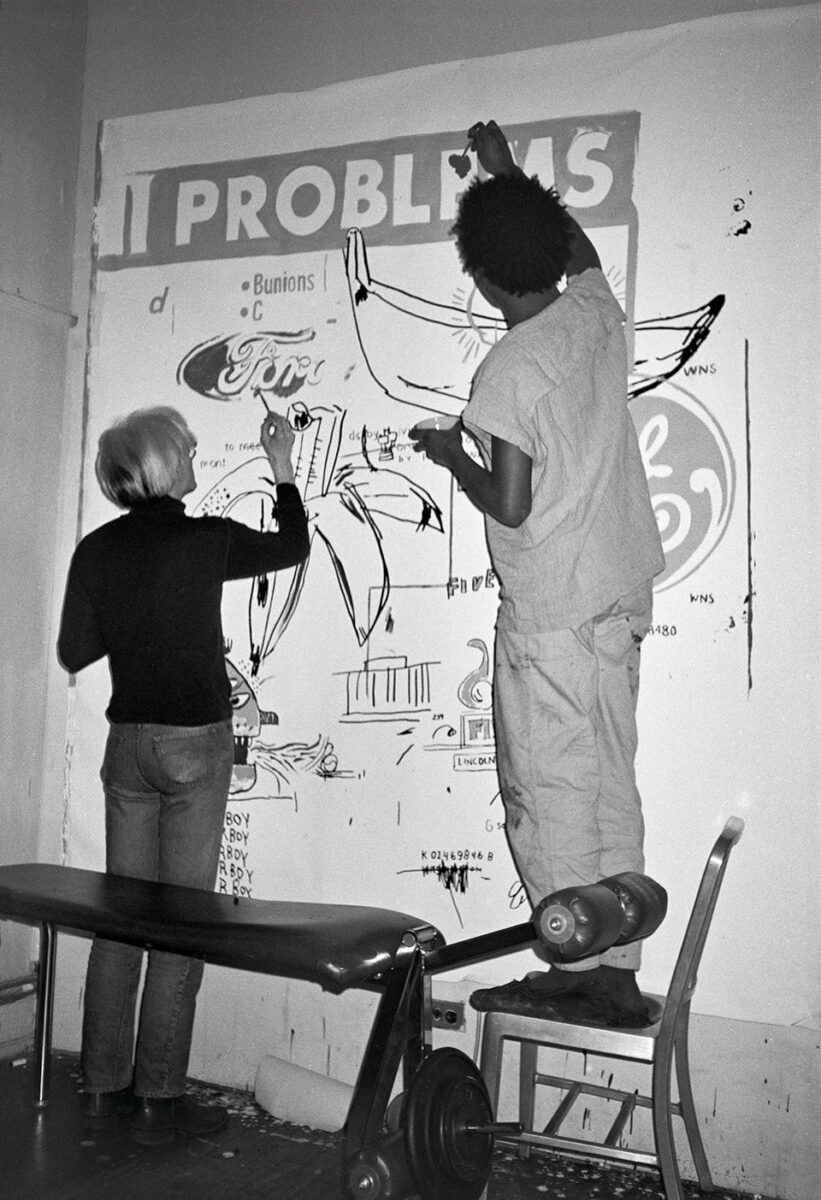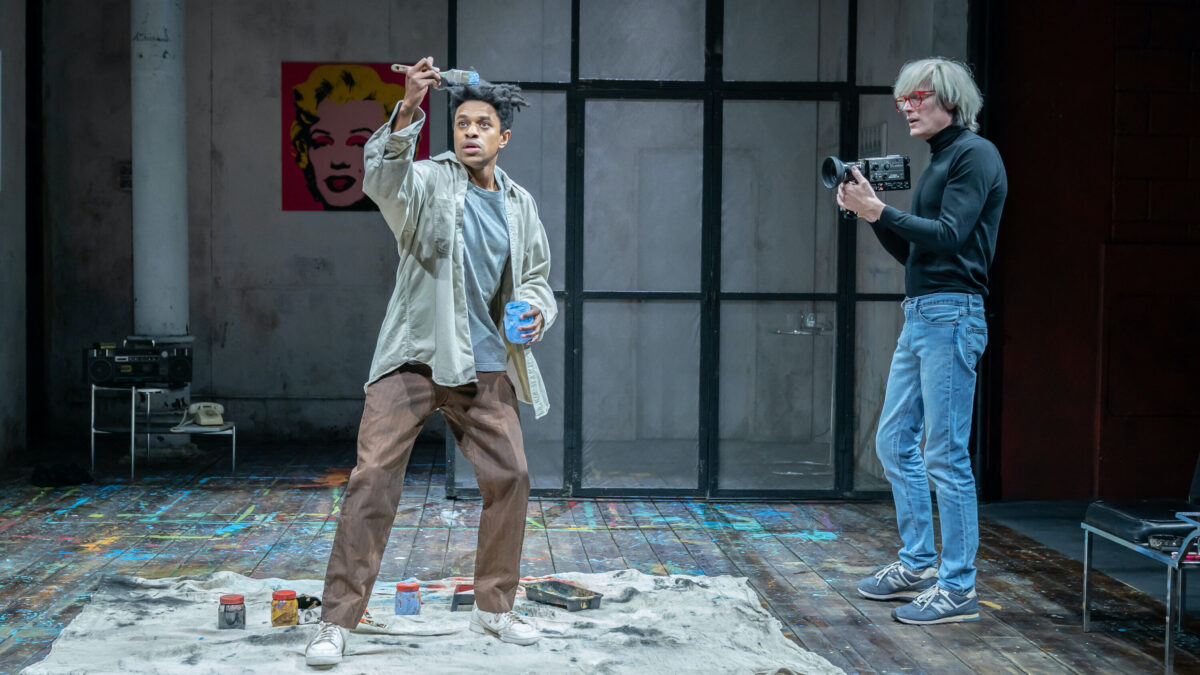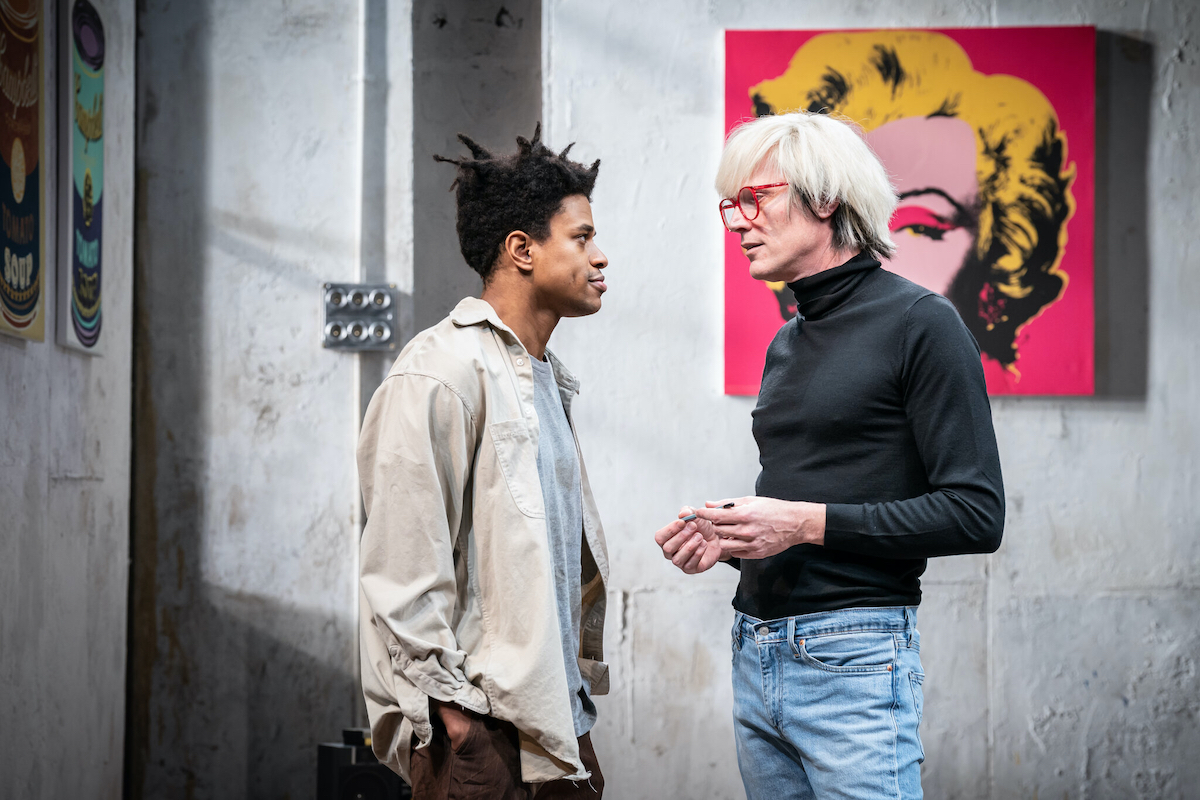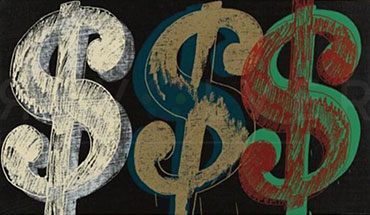By Alicia Chen
“Painters are like boxers: both smear their blood on the canvas.”
A major feature film following Andy Warhol and Jean-Michel Basquiat’s eclectic partnership heads into production this month. The much-anticipated production is based off of Anthony McCarten’s The Collaboration, a West End production reimagining the compelling friendship and professional collaboration between the two great artists. The play transfers to Broadway this fall in late November before the debut of its thrilling big-screen adaptation.
Anthony McCarten, The Collaboration, 2022
Warhol and Basquiat: The Union
From the boroughs of New York emerged an alliance no one had expected. Andy Warhol, the founding father of Pop Art, and Jean-Michel Basquiat, the Neo-Expressionist protégé, formed an unlikely friendship in the ‘80s born of professional ambition and mutual inspiration.
Rising star Basquiat sprouted from his humble beginnings as a homeless, unknown artist to eventually dominating the higher echelons of fine art as an internationally acclaimed figure. Upon his arrival to the city, Basquiat sold hand-painted T-shirts and postcards to earn a living, but he managed to attract some attention when his
cryptic graffiti tag “SAMO,” coupled with oblique pieces of poetry, appeared all
throughout the streets of Lower Manhattan. Committed to infiltrating the city’s burgeoning art scene, Basquiat frequented the Warhol crowd and tried tirelessly to earn his attention. At first, the Pop artist regarded him with guarded indifference, though their relationship evolved heavily over time.
Warhol’s 1980s were defined by intense self-doubt and uncertainty. He was criticized for acting too “commercially minded” and superficial, for focusing too much on the business ends of art. Under these tense circumstances, he found new stimulus among a number of prolific young artists, including Keith Haring and of course, the infamous Basquiat. Legend has it that the two first met by chance when the ambitious teenager approached Warhol at a restaurant in SoHo to sell him a postcard. Although, many consider their formal introduction to one another occurred in late 1982, when art collector and gallerist Bruno Bischofberger brought them together for a lunch meeting. Allegedly, Basquiat anxiously left the restaurant, but quickly returned with a large canvas he had painted: a double-portrait of Warhol and himself. Reciprocal curiosity and intrigue soon formed between them, igniting the fiery six-year partnership.
Andy Warhol and Jean-Michel Basquiat, photographed by Michael Halsband, 1985.
They became avid collaborators as quickly as they became close friends. The two worked together extensively despite their contrasting styles, creating joint paintings that reflected both Warhol’s distinct Pop Art printings technique and Basquiat’s raw and gestural approach. Their generation gap offered a powerful advantage for both of them; each found something worth cherishing in the other: Warhol’s fame boosted Basquiat’s legitimacy and recognition, while Basquiat’s restless spirit reinvigorated Warhol’s art. Warhol’s longtime assistant Ronnie Cutrone summarized the dynamics of their symbiotic relationship: “Jean-Michel thought he needed Andy’s fame and Andy thought he needed Jean-Michel’s new blood. Jean-Michel gave Andy a rebellious image.” Together, the two artists produced a breadth of enigmatic artwork that startled the industry. Although, the media was mostly unimpressed with the duo, and public criticism of their work outweighed public praise, despite the support they received from close acquaintances.
Andy Warhol and Jean-Michel Basquiat, March 27, 1984 © The Andy Warhol Foundation for the Visual Arts, Inc.
Unfortunately, a failed joint exhibition—“Paintings” held in 1985 at the New York gallery of Tony Shafrazi—left the pair estranged. Basquiat cracked under the critical eye of the media, having been labeled Warhol’s “mascot,” and the two rarely spoke again. Andy Warhol was no stranger to criticism, but Basquiat had high hopes of achieving success on the shoulders of his hero. Having been hit with such disdain from the media, Basquiat was left confused and disappointed. On November 24th, 1985, Warhol solemnly wrote in his diary: “Jean Michel hasn’t called me in a month, so I guess it’s really over.” Previously, the two spoke on the phone nearly everyday, and had regular painting sessions at Warhol’s studio. Following the event, they remained in touch, albeit far less than before.
Basquiat’s career did continue to accelerate, and he went on to travel the world as one of the only globally celebrated Black artists of his time. Still, Warhol’s death in February of 1987 had a jarring impact on him, a man already beset by demons and struggling with addiction. His grief drove him further into drug use and he passed away tragically less than two years after Warhol’s death in August of 1988.
A New Chapter
The story of Warhol and Basquiat is at once uplifting and severely tragic. At the time of their pairing, it may have been difficult to perceive the significance of their collaborations. Now, looking back, the story of Warhol and Basquiat has been recognized and adored for its true enigmatic nature, and continues to inspire generations of creatives.
The late artists will appear in a $20 million feature film that began production in September, in Boston and the Lower East Side of New York. The film is an adaptation of Anthony McCarten and Kwame Kwei-Armah’s Young Vic play, The Collaboration, a vibrant bio-drama exploring the rise and fall of Warhol and Basquiat’s captivating relationship. Award-winning actors Jeremy Pope and Paul Bettany traverse far beyond mere impersonation; they perfectly embody the two artists and mimic their mannerisms to a T: Basquiat’s freewheeling, childlike enthusiasm, and Warhol’s wariness and neuroticism and dry sense of humor. Pope and Bettany received rave reviews for their memorable portrayals of the influential artists, and are invited to reprise their stage roles for the upcoming film. One critic wrote: “Paul Bettany and Jeremy Pope are simply made for each other.” Though the characters are confined in a New York City studio, the audience is carried to the outer world through their discussion of deeper subjects, including the power of art and its position in society. McCarten focused on highlighting and celebrating the artists’ conflicting ideologies: “Andy’s approach to art could hardly have been more different than Jean-Michel’s. He believed in the surface of things, that if society was now all about reproduction and business, then art should reflect and embody that. It is this argument, between Jean-Michel’s vision and Andy’s philosophy, that drives the piece.”
Jeremy Pope as Jean-Michel Basquiat and Paul Bettany as Andy Warhol in The Collaboration, photographed by Marc Brenner.
Renowned playwright Kwei-Armah will retain his role as director for the silver screen, joined by production designer Hannah Bleacher and cinematographer Robert Yeoman. Kwei-Armah shared that the film would expand upon the original production, delving further into the characters and their surrounding cultures—New York City from decades past, an urban playground and hotbed of creativity, and the radical legacy of a
game-changing art scene. Kwei-Armah stated: “The play had two stars, Basquiat and Warhol. In the movie, there are three stars, Basquiat, Warhol and New York City of the 1980s… The film goes into more detail about their lives.” It had also been announced that Popular German actor Daniel Brühl has been confirmed to play Bruno Bischofberger, the grandiose art dealer who encouraged collaborations between Warhol, Basquiat, and Francesco Clemente. Mexican actress Melissa Barrera has been signed on to play Maya, a truth teller who loves Basquiat but is suspicious of Warhol.
Jeremy Pope as Jean-Michel Basquiat and Paul Bettany as Andy Warhol, photograph by Marc Brenner
The film will explore one of the greatest unions in the history of contemporary art, between two equally prominent but antithetical artists: Warhol, the enigmatic and established king of Pop Art, and Basquiat, the spontaneous wunderkind. While they represent stylistic opposites, both transformed the artistic community in ways we can only imagine; the film is a testament to each artists’ immense contributions to the art world that remain relevant and formidable to this day.
Sources
https://www.theguardian.com/artanddesign/2022/aug/21/the-colloboration-andy-warhol basquiat-movie-play-paul-bettany-jeremy-pope
https://deadline.com/2022/07/the-collaboration-broadway-opening-paul-bettany-jeremy pope-warhol-basquiat-1235059444/
https://www.theguardian.com/stage/2022/feb/27/the-collaboration-young-vic-anthony mccarten-warhol-basquiat-kwame-kwei-armah-review-good-fun-victoria-wood-kings head-50
https://deadline.com/2022/08/daniel-bruhl-joins-paul-bettany-jeremy-pope-in-the collaboration-1235087400/
https://www.sothebys.com/en/articles/tale-of-two-legends-warhol-and-basquiat
https://www.timeout.com/london/theatre/the-collaboration
review#:~:text=It’s%20a%20witty%2C%20stirring%20and,IRL%20together%20during% 20the%20’80s.
https://revolverwarholgallery.com/a-meeting-of-the-minds-pop-art-pioneer-andy-warhol enigmatic-basquiat/
https://deadline.com/2022/09/the-collaboration-melissa-barrera-joins-warhol-basquiat film-1235110321/

